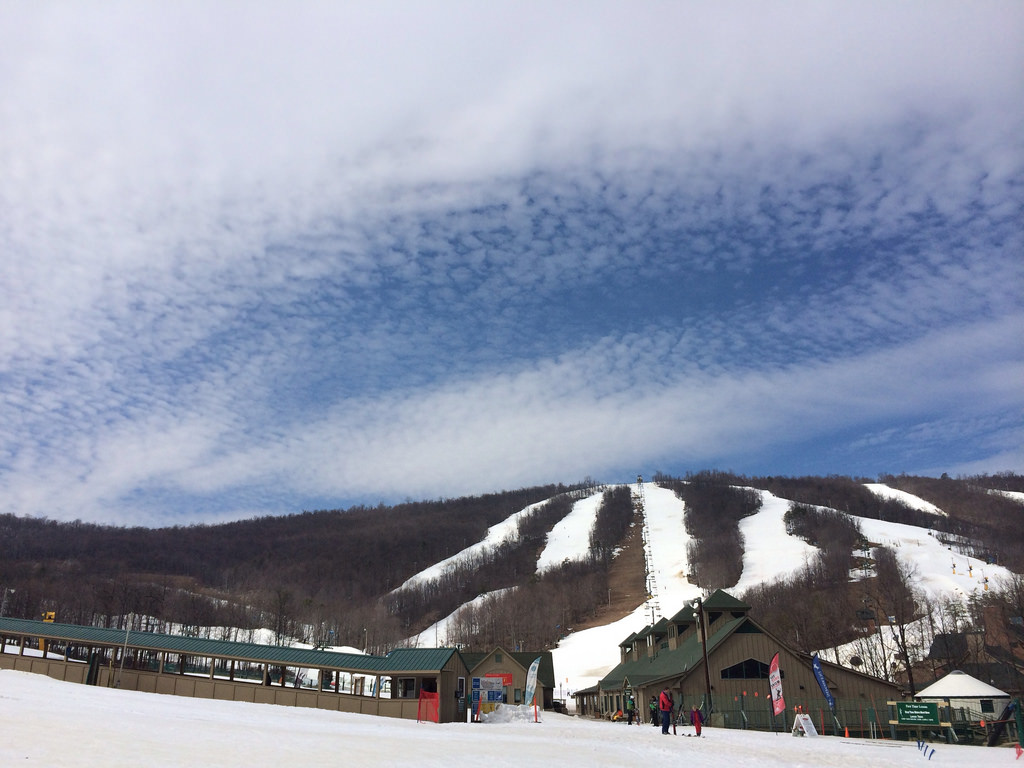Despite the recent winter storm, Stella, the warm weather is making the snow terrible this year. At a local ski resort, the slopes were covered in sheets of ice or slush. Extremely warm days make the the snow melt into puddles which freeze over during the night. The icy deathtrap covering the slopes has made skiing conditions less than ideal this ski season.
One can only wonder what is causing the onslaught of unusually warm weather this early on in the year.
Record breaking warmth has dominated over two thirds of the country this winter. Flowers are blooming up to three weeks early and very there is very little ice on the Great Lakes. There has been the lowest ice coverage of the great lakes in two decades. In 2015 the lakes were 82.8 percent covered in ice. This year the ice coverage is at 8.7 percent.
The warm weather is also affecting our wildlife. Bears are coming out of hibernation early only to find that the berries and other foods they forage for are unavailable. This leaves the bears traveling farther in search for food causing more human encounters. This above average warm temperature has lead to scientists scratching their heads about the cause of this mild winter.
The average temperature this February was 45.5 degrees Fahrenheit. To put this in context, the average temperature for February 2015 was 30 degrees Fahrenheit.
Record-level warmth has dominated any cool air seen this February. 98 percent of all records set since Feb. 5 have been due to warm air. On the other hand only one out of every 87 records can be attributed to the cold, according to The Weather Channel.
The common belief is that the warm temperature is due to global warming. According to the University Corporation for Atmospheric Research, global warming only contributes roughly 1.53 degrees Fahrenheit (0.85 degrees Celsius) to the average temperature. This winter, scientists have seen the temperature 10-15 degrees Fahrenheit above the average, which is much higher than anything that can be attributed to global warming. Although global warming does still contribute to the heat, it is not the major cause of the warm weather.
According to The Washington Post a large contribution to the warm weather is coming from the North Pacific jet stream. The jet stream is a narrow, variable band of very strong air currents encircling the globe several miles above the earth.

The North Pacific jet stream acts as a boundary between the cold North Pole air and the warm equatorial air. This winter, the jet stream has been farther north than usual, causing the onslaught of warm temperatures in subtier of the Unites States.
WIS’ very own ski club has experienced first hand the effects of this unusually warm weather. Celeste Bloom, a freshman member of the club said that “The snow at Whitetail is usually bad and mostly man made. It’s kind of more pieces of ice”. Whitetail is a public ski resort, situated a two hour drive away from the campus. The resort is now closed due to the warm temperature.
On the Friday of the last club meeting, she stated that she only went down one slope because the slopes were “full of mud” and the rest of them were closed. That Friday was a particularly warm day. Students at WIS found themselves walking around the campus dressed in T-shirts and shorts, then having to go change into their thick ski attire. Celeste expressed that the snow was pretty bad that day, saying that “you could literally wear you t-shirt up at Whitetail.” She mentioned that one of her friends had skied in shorts.
That day, the snow provided some interesting challenges for several skiers. Madeline Connolly, another freshman member of the club, commented that “the warm weather caused last minute swerves to avoid grass.”
Since the ski resort is closed, the WIS ski club is now over. When asked what ski club would be like next year, Amy Burgener, head of the ski club and math teacher noted that the warm weather might affect attendance but they would still go if the slopes were open. She also mentioned that the snow was never great and frequently icy saying that the weather often doesn’t cooperate.
By Juliette Fischer


































































